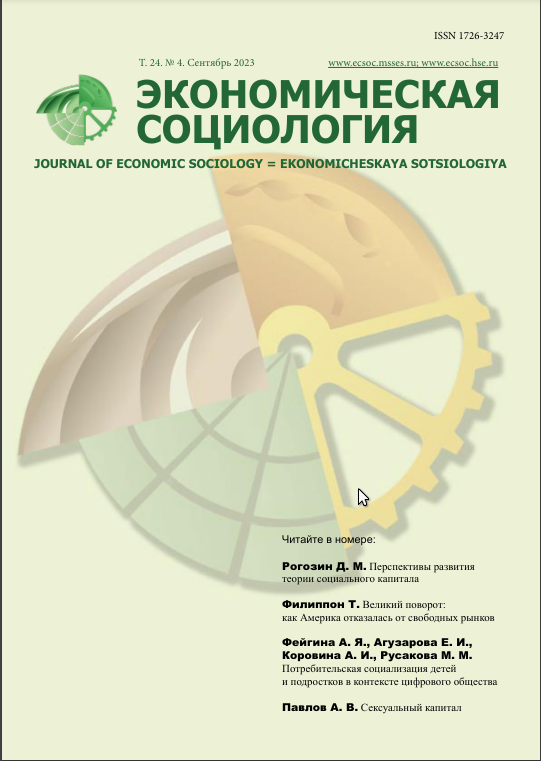Consumer Socialization of Children and Adolescents in the Context of the Digital Society
Abstract
This article showcases the results of a study on the formation of consumer behavior in children and adolescents within the context of digital society. The research problem lies in the lack of information about the specificities of forming consumer behavior in the context of the digital society. The research objective is to identify the nature and extent of the influence of agents of consumer socialization on the formation of consumer behavior in children and adolescents within the digital space. Bloggers are highlighted as specific agents of consumer socialization in the digital society. The theoretical foundations of the study include social learning theory and role theory of socialization. The concept of “consumer socialization” central to the study is thoroughly examined. Data collection was conducted through semi-structured interviews with 80 children and adolescents aged 12 to 16 from 27 regions of the Russian Federation. Interviews took place in cities such as St. Petersburg, Moscow, Novosibirsk, Samara, Kazan, Perm, Sochi, Surgut, Rostov-on-Don, and others. Data analysis was conducted using one of the thematic analysis techniques—Template Analysis, which allows structuring large data sets into hierarchically organized groups. The research revealed that parents, siblings, and peers actively participate in selecting and making online purchases of various gadgets for children. Parents often impose spending limits in the digital environment. Recipients of donations are often not bloggers themselves but friends or peers trying their hand at blogging. Bloggers currently hold authority among children and adolescents: the higher the authority, the more trust there is in advertisements within blogs. The data obtained from the research is planned to be used in future studies of consumer socialization and the development of specialized scales for surveys.













